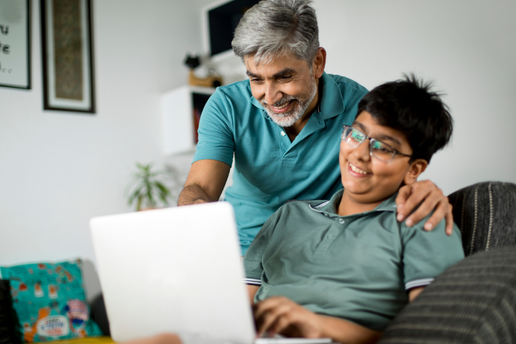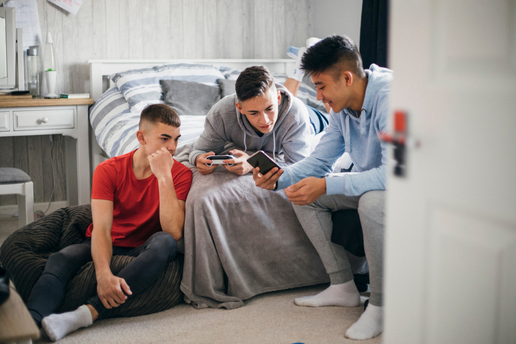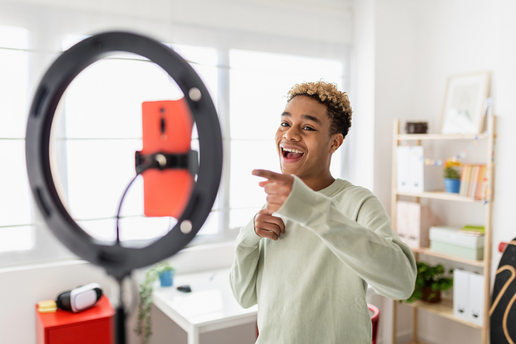The following excerpt was pulled from a piece written by Octav Fedor for AntivirusGuide, published on September 12, 2022, read the complete original post here.
 It’s estimated that 60% of the world’s population uses social media. Unfortunately, social networking platforms attract a lot of bad guys who target kids. According to the FBI, there are 500,000 online child predators active daily. Even more concerning, over 50% of victims are aged 12 to 15, with 89% being contacted by online predators through chat rooms and social media apps like WhatsApp and Snapchat.
It’s estimated that 60% of the world’s population uses social media. Unfortunately, social networking platforms attract a lot of bad guys who target kids. According to the FBI, there are 500,000 online child predators active daily. Even more concerning, over 50% of victims are aged 12 to 15, with 89% being contacted by online predators through chat rooms and social media apps like WhatsApp and Snapchat.
Online predators are just one of the many dangers kids face while using social media. They’re also vulnerable to cyberbullying, phishing, scamming, and other threats. Parents and guardians need to be aware of these dangers, including how to take appropriate action should the worst happen.
 Social Media Safety Tips for Parents
Social Media Safety Tips for Parents
Children can be extremely vulnerable online, especially while using social media apps. Here are some critical tips for keeping them safe:
- Learn about the latest social media trends and technologies. This will help you understand how social media works, including what your child does on it.
- Join the social media sites or apps your kids are using. Doing so will help you monitor their activity and see what they’re posting.
- Talk to your kids about social media safety. They need to understand the dangers and how to avoid them.
- Set limits on your child’s social media use. This will help them balance their use of social media with other activities.
- Monitor your kids’ social media activity. As a parent, you need to see their actions and identify any red flags.
- Report suspicious activity to the relevant platform and law enforcement. Don’t take any chances — report problems as soon as possible.
- Use parental control software. This will help you block inappropriate content and monitor your child’s activity.
- Don’t share personal information. This includes your child’s name, address, school details, and pictures.
- Avoid giveaways. Many social media contests are scams. Your child may end up giving their personal information to the wrong person.
- Use antivirus software. Software solutions like Bitdefender and McAfee will help protect your computer from viruses and malware.
- Update your privacy settings. Adjusting privacy settings regularly will help you manage who can see your child’s information.
- Use a VPN. A virtual private network helps you encrypt your child’s Internet traffic and disable location services. Never share your location. Your child mustn’t use location services. This goes for you, too.
- Use a strong password. Using a strong password is one of the best ways to protect your child on social media. A strong password is difficult to break as they contain various characters, including letters, numbers, and symbols. You should never use your child’s name, birthday, or Social Security number as a password.
- Use two-factor authentication. This security feature is important because it adds an extra layer of security to your child’s account. To log in, you’ll need two forms of identification, such as a password and a fingerprint. This makes hacking difficult.
- Report or block users. If your child receives friend requests from people they don’t know, it should be reported to the social media platform immediately. They can also block users who are spamming them or sending inappropriate messages.
- Keep apps updated. Social media platforms are constantly changing and updating their security features. It’s essential to keep your child’s apps updated to benefit from the latest security features.
- Check your account for data breaches. Social networking sites experience data breaches. This means that your child’s information could be at risk. Teach them to check their accounts regularly for data breaches.
- Talk to your child about the dangers of social media, including psychological hazards. It’s no secret that social media has a negative impact on behavioral health.
 Rules Your Child Should Follow
Rules Your Child Should Follow
Your plan to protect your children from the dangers of social media should also include teaching them the following rules:
- Don’t create accounts if you are not old enough — usually 13+. If your child is under 13, they should not have a social media account.
- Keep the family computer in a common area of your home. Doing so will help you monitor your child’s activity.
- Never give out personal information. This includes names, addresses, school-related information, and pictures.
- Never accept friend requests. Children should never accept friend requests from people they don’t know.
- Don’t meet people from social media in person. This can be extremely dangerous as the person they meet could be a sexual predator.
- Use social media apps and the Internet for a set number of hours daily. Your child should have other hobbies in addition to social media. A healthy balance between online and real-life activities is always encouraged.
- Ask for their account credentials. If you’re dealing with an older teen, don’t ask for passwords; instead, ask them to add you as a friend so that you can monitor their activities.
 How to Keep Kids Safe on Social Media – In Summary
How to Keep Kids Safe on Social Media – In Summary
Taking everything into consideration, here’s how to protect children on social networks, step by step:
- Check their devices for dangerous social media apps like Omegle, Whisper, or Yik Yak.
- Learn how to protect kids from cyberbullying, online predators, and inappropriate content.
- Understand the dangers of phishing, sexting, and identity theft as they relate to social media.
- Monitor and control their social media activity using parental control tools.
Use a VPN and fine-tune the privacy settings. - Keep the apps and operating system installed on your child’s device up-to-date.
- Set rules with your kids, including:
- Follow the age requirements for all social media platforms (typically 13+).
- Never share personal information on social media.
- Use strong passwords for all social media accounts.
- Never leave personal information on a public computer.
- Never meet a stranger you meet on social media in person
- Install antivirus software like Bitdefender and Norton on their devices, which can prevent malicious links and malware from being opened.
Above is a portion of information from The Ultimate Social Media Saftey Guide for Kids [2022], written by Octav Fedor for AntivirusGuide, published on September 12, 2022, read the complete original post here.


